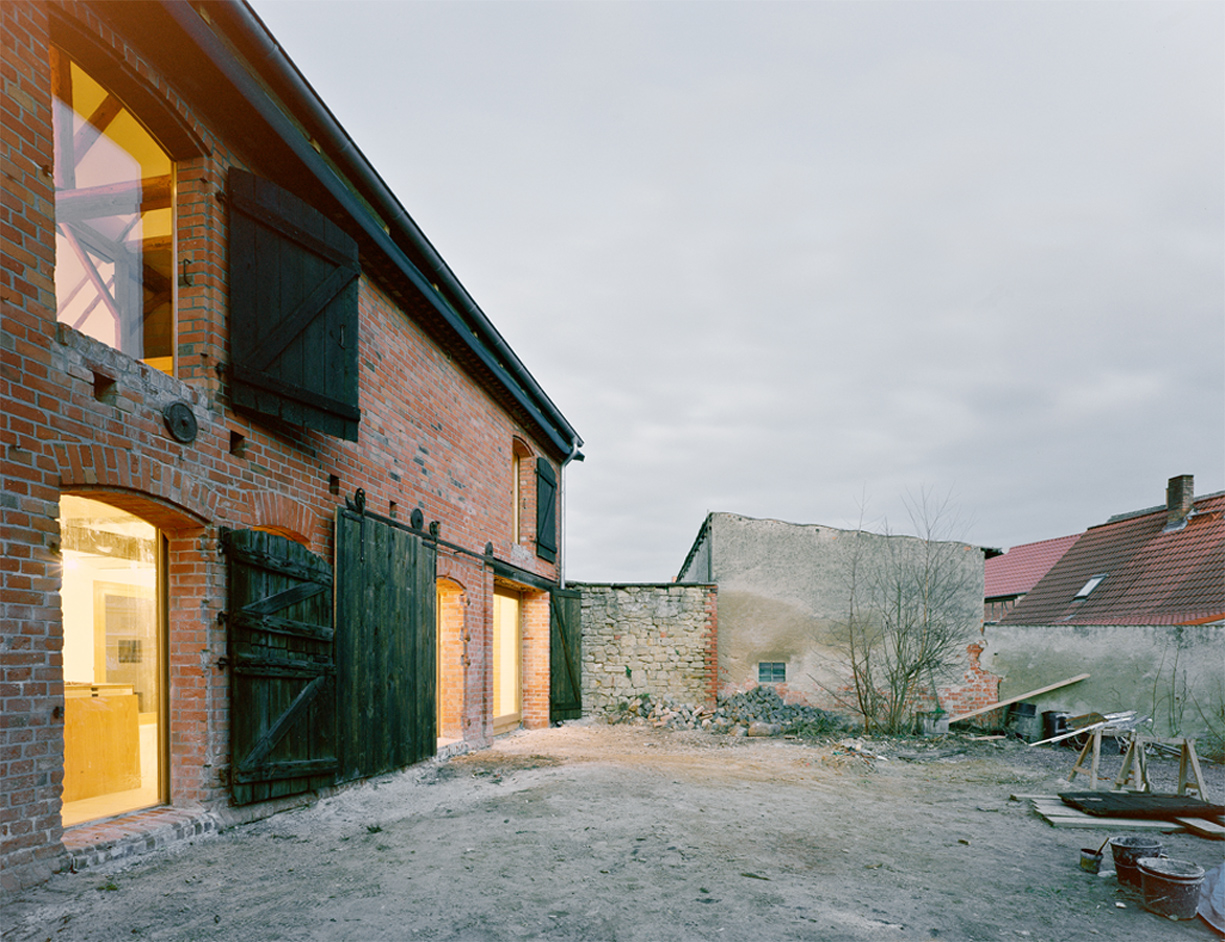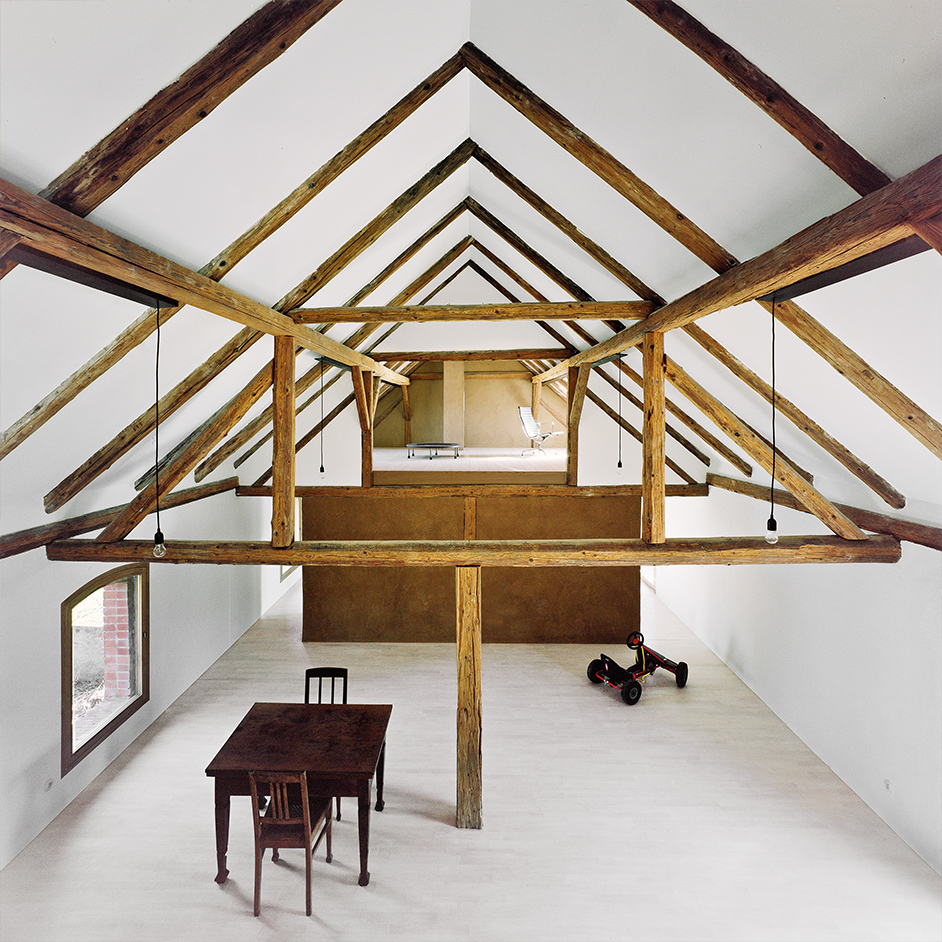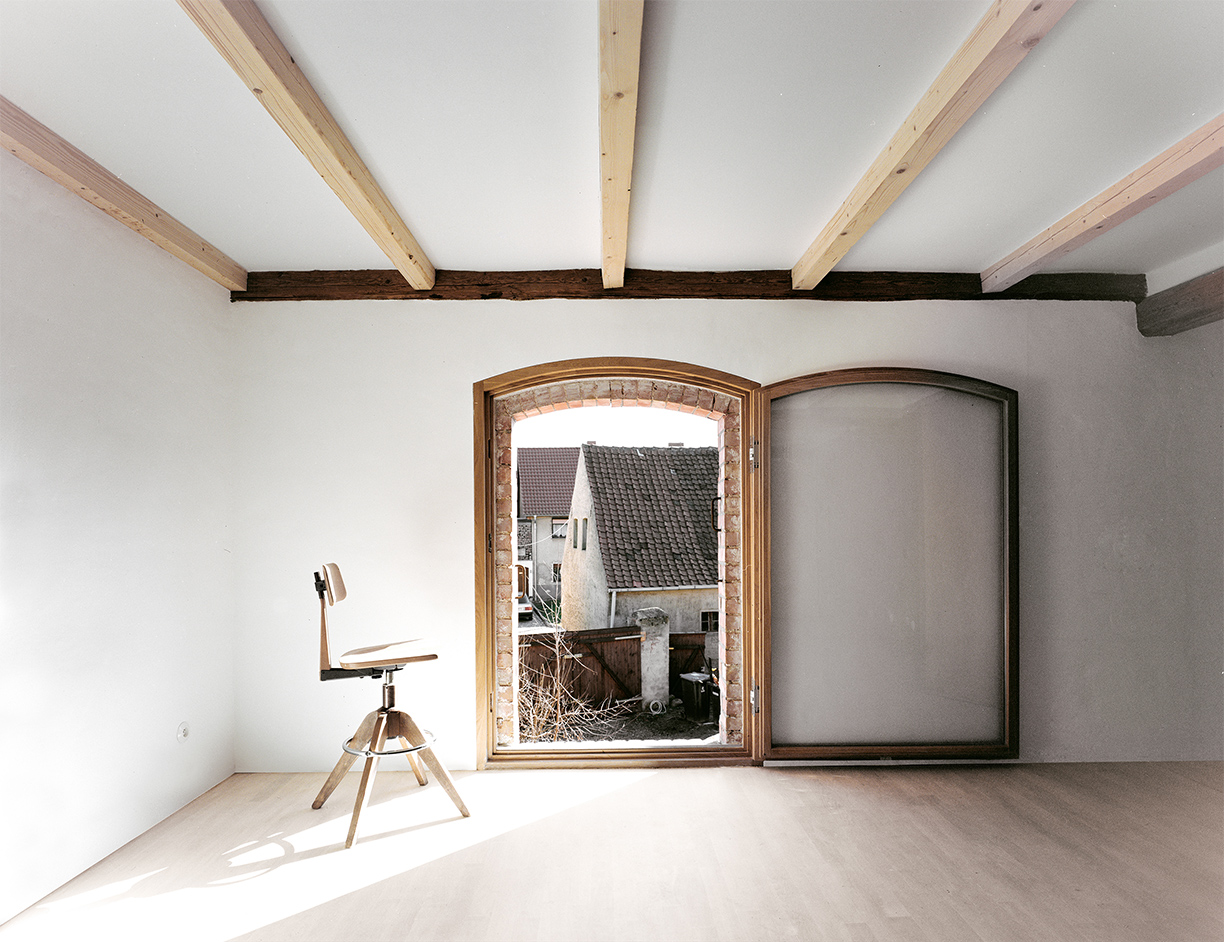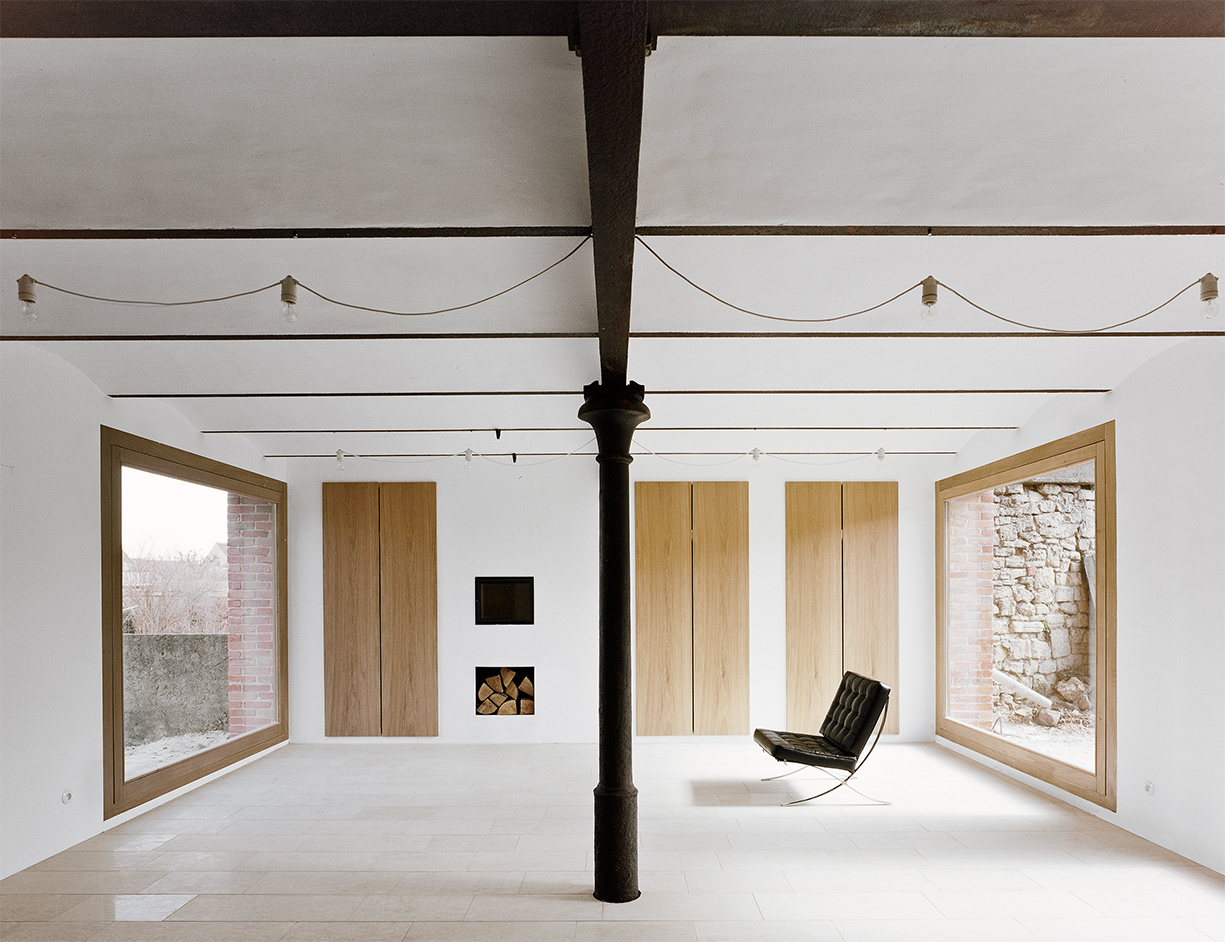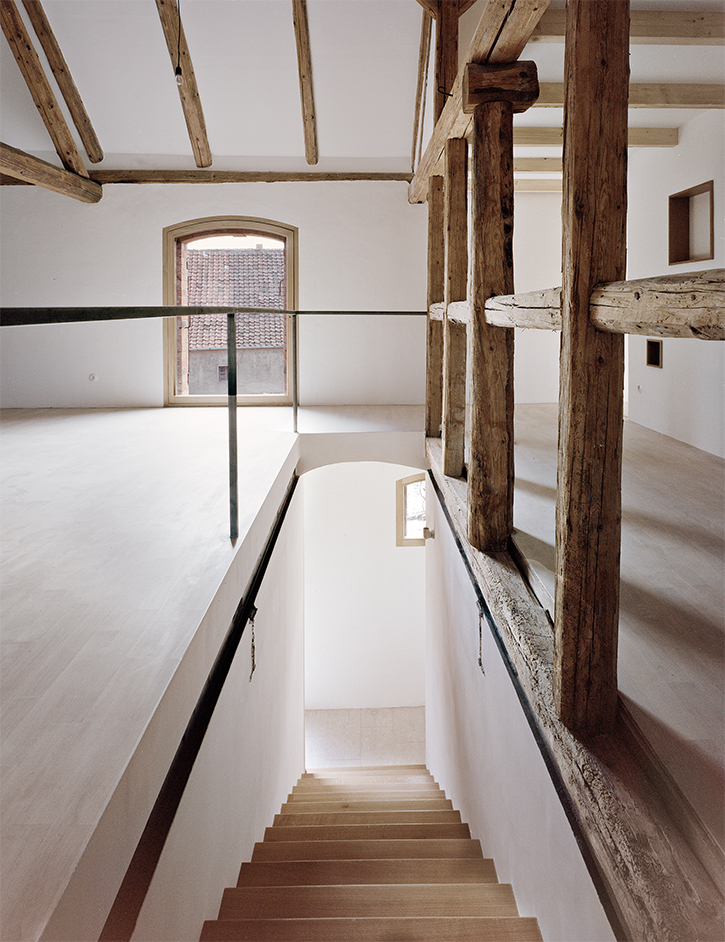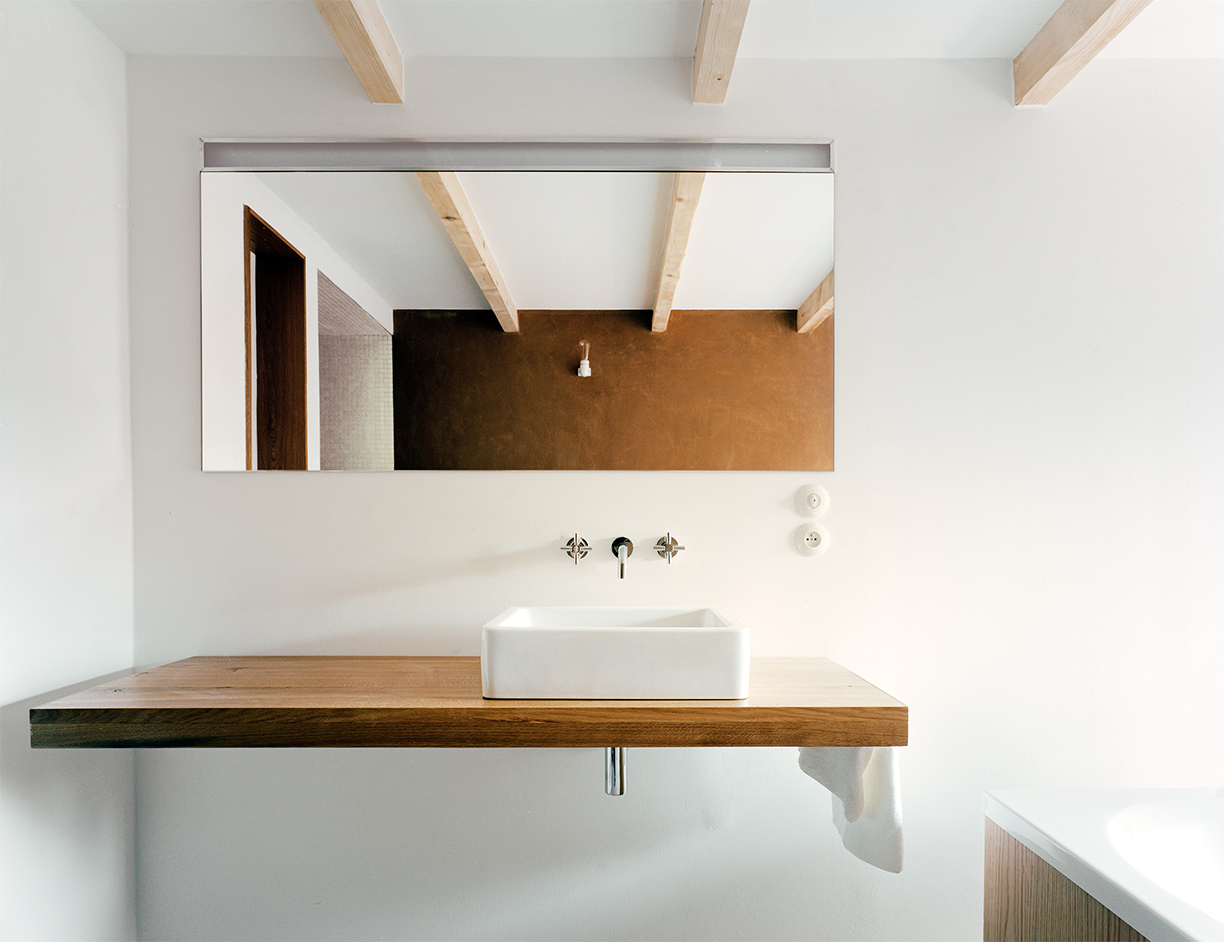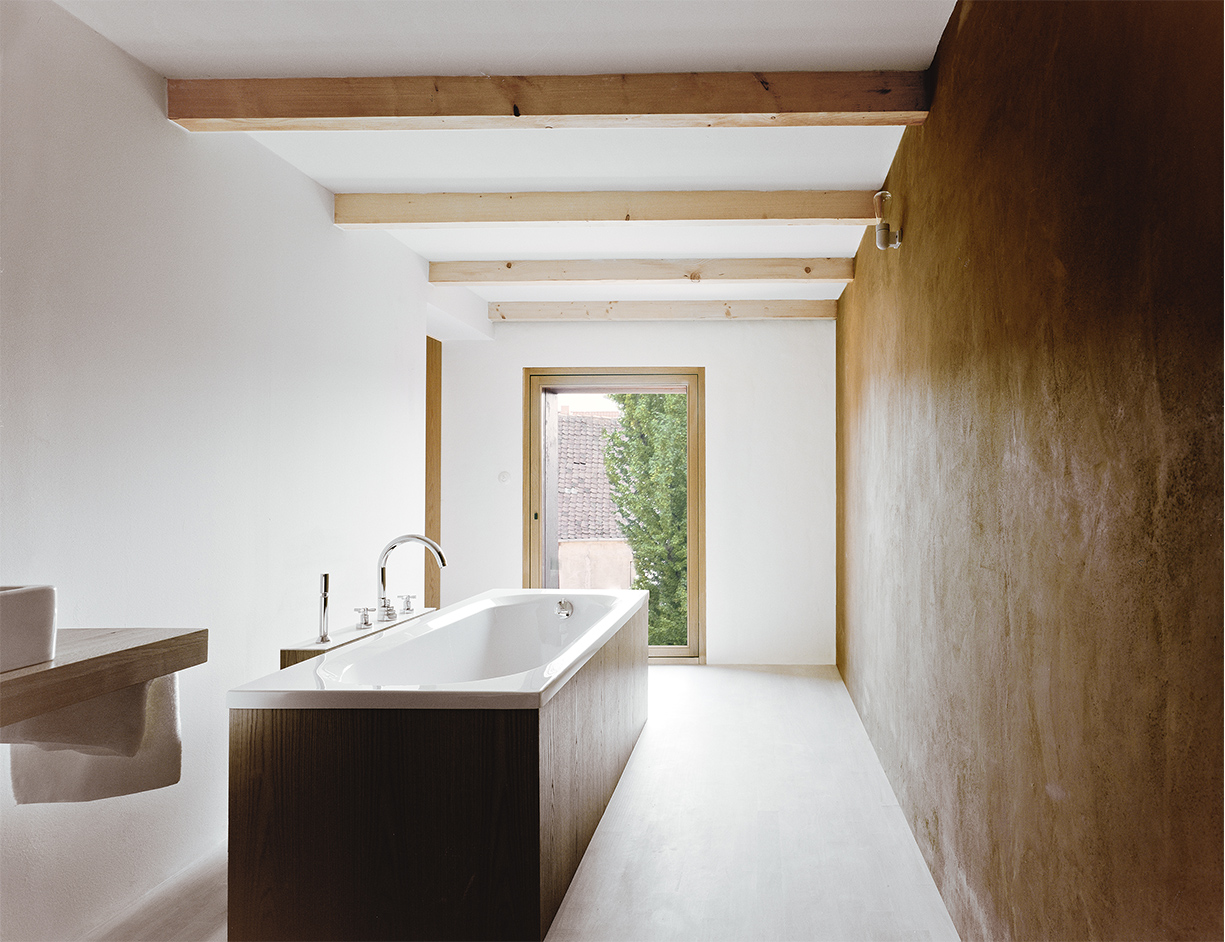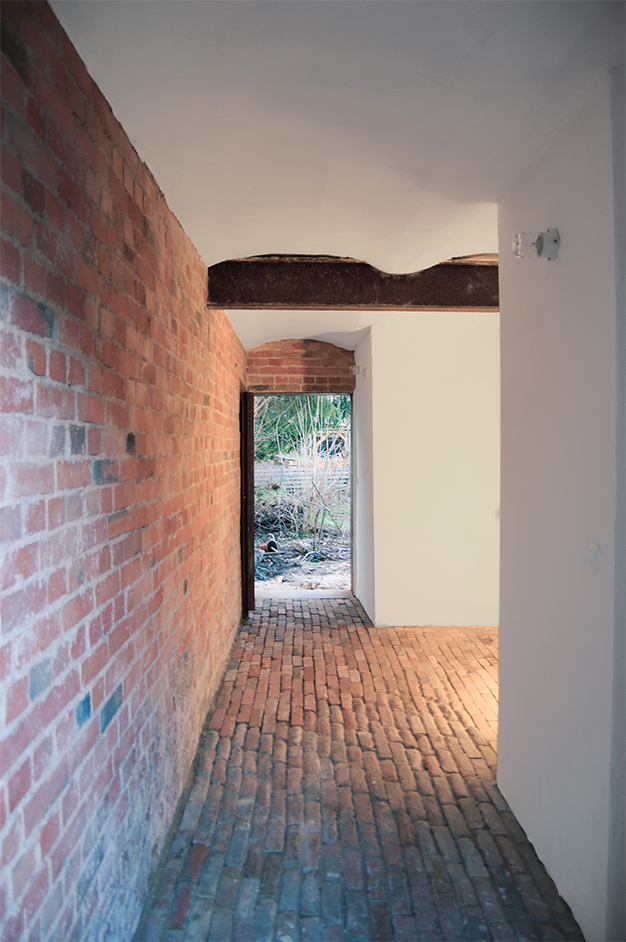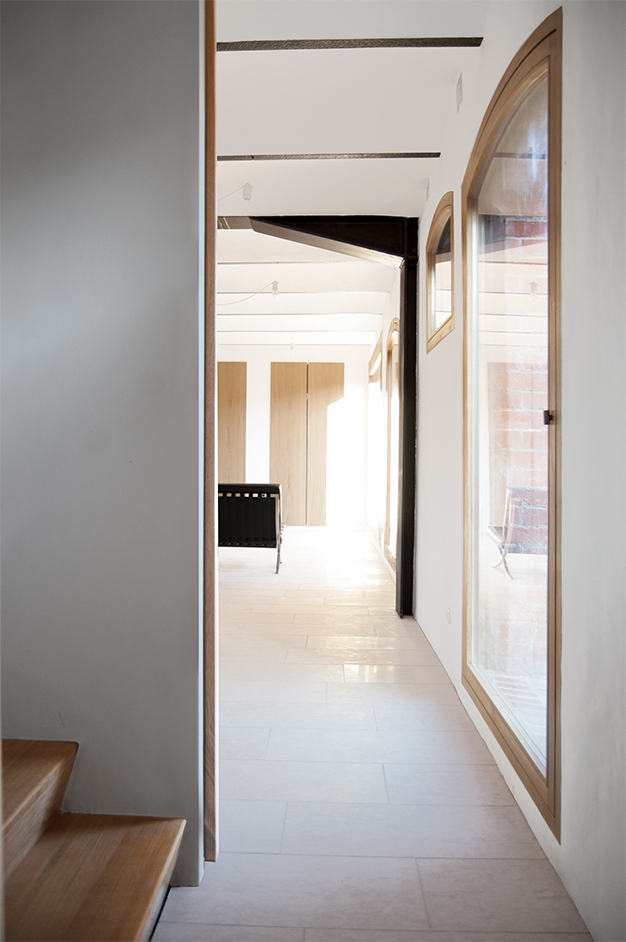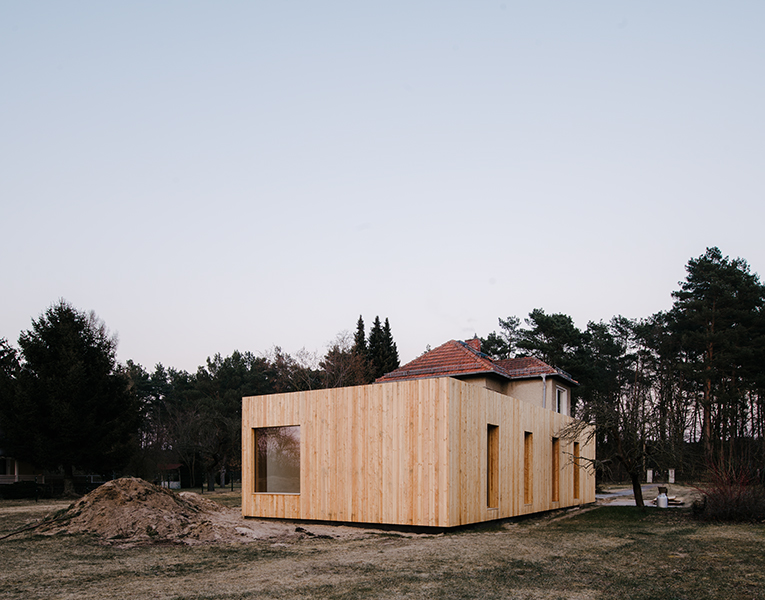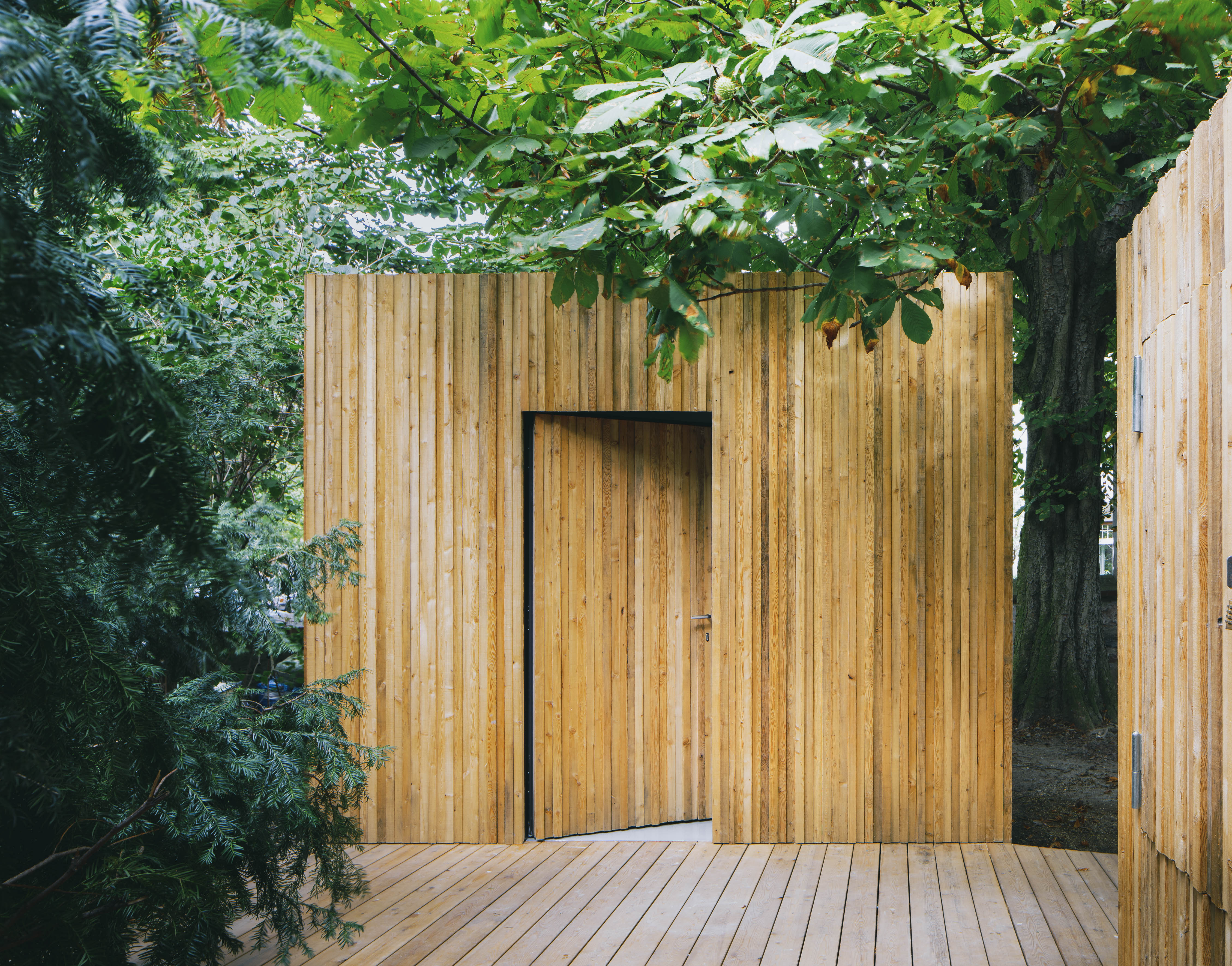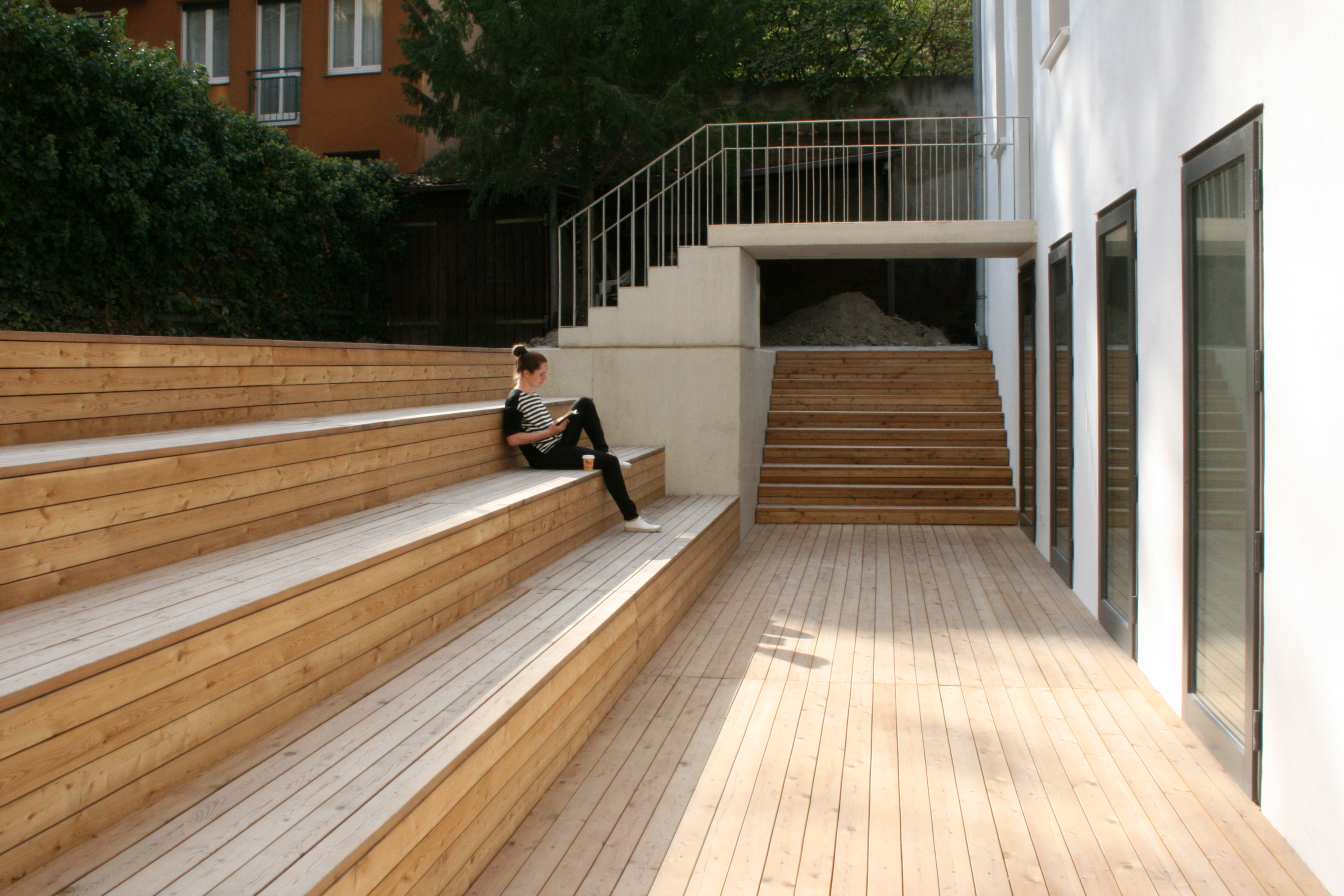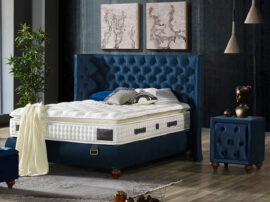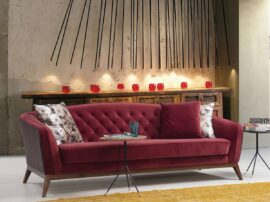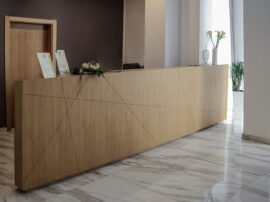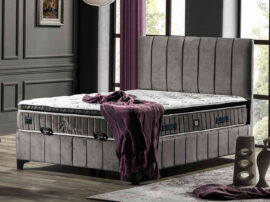Haus Stein, 2013, Druxberge, Germany.
Conversion of an unused barn from the 1930’s into a vacation residence.
“Haus Stein” is the result of the conversion of an unused barn from the 1930’s into a holiday home. The particular character of the barn in its rural setting was preserved through minimal interventions on its outer shell. In the absence of its users, the building’s new function remains concealed. It is only when the wooden shutters and doors are open that the striking contrast between a clean and rigorous inner organisation and the raw facades reveals the new purpose of the building.
In this context, a great challenge consisted in retaining the irregular façade openings and in using them to master the necessary lighting and views according to the domestic purpose of the building. In addition, the existing Prussian vaulted ceiling and the metallic beams had to be treated with great care. Every intervention such as new walls or the new staircase is built in respect of the existing structural system. As a result, the apparently simple inner organisation becomes the synthesis of an attentively calibrated, structurally and formally harmonious interplay.
Common daily living takes place on the ground floor, one single space and its two attached terraces, which are accessible on either side via large glass doors. The first floor is designated to a more intimate use, characterised by smaller rooms and warm materials such as the white-polished oak plank floor and the loam rendering. This storey contains a large master bedroom and a bathroom. A more quiet sitting area runs between the two and provides room for contemplation and recreation. Beneath the roof pitch at both gable ends children will find a gallery accessible by loft stairs.
Sustainable building materials were used whenever possible. Many of them, as the traditional clay tiles, were taken from demolished structures in the area and brought to the building site. When not recycled from the old barn itself, bricks were brought from the neighbourhood in the same way. Cut and polished they could be reused in the building. In addition to the bricks, the loam rendering used in the upper floors contributes to a healthy indoor climate. The inner walls are insulated with soft fibreboard, while flax insulation is used between the rafters. An efficient gas fired heater, solar collectors and photovoltaic panels contribute to a resource-efficient use of energy.
A crucial factor in the project has been the fact that the construction company was part of the office structure. The constant and continuous interchange of designing and building from the beginning of the project to its completion was very enriching and led to a level of perfection that would otherwise not have been achieved.
Year: 2010 & 2013
Place: Druxberge, Sachsen-Anhalt, Germany
Client: Private
Architect: Jan Rösler Architekten
General contractor: Jan Rösler Bau
Photographer: Simon Menges
